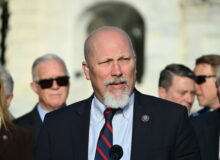Federal spending and debt levels are utterly unsustainable (May 31): The Committee for a Responsible Federal Budget, a respected nonpartisan group, reminded us yet again Tuesday that federal spending plans and debt levels are unsustainable. Lawmakers should get serious about debt reduction now — before it’s too late.
Counting only debt held by the public — which is some 20% lower than total government debt, including intragovernmental transfers — CRFB says that absent strong corrective action, the federal debt is likely to reach 125% of gross domestic product within a decade. Most nations are in a serious danger zone for economic collapse when debt exceeds 100% of GDP.
A lot of this is the fault of former Presidents Barack Obama and Donald Trump. In raw numbers (not GDP), and not blaming either for crises beyond their immediate control (the 2008 financial crisis and the coronavirus pandemic), the evidence of their outlandish spending is indisputable. Obama allowed the national debt to grow by $6.625 trillion in the seven years between the end of 2009 and the end of 2016. In the next three years, before the pandemic hit, Trump allowed it to grow by another $2.748 trillion. …

Paul Ryan’s tax cuts worked, but Biden caused inflation (Official Washington Examiner editorial, June 1):
The Congressional Budget Office has just confirmed that President Joe Biden is blameworthy for the record-high inflation that is punishing workers. Further, this nonpartisan source says that Biden’s preferred fix, raising taxes, will only make the economy worse.
The CBO’s annual economic outlook adds further force to the arguments against Biden made by other Democrats, such as former President Barack Obama’s National Economic Council director, Larry Summers, and Council of Economic Advisers Chairman Jason Furman….
By paying workers not to work, Biden’s COVID stimulus artificially “slowed the recovery of labor force participation.” As noted by Texas Rep. Kevin Brady, the top Republican on the Ways and Means Committee, this lack of workers strained supply chains, thus providing a second source of upward pressure on prices.
The CBO predicts that this Biden-caused inflation will persist into next year, tempered only by the Federal Reserve’s willingness to raise interest rates, which will, in turn, cause the economy to slow or even contract….






